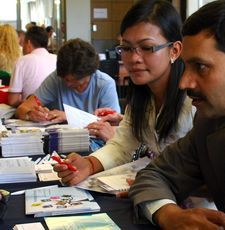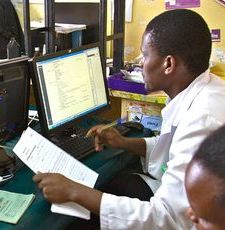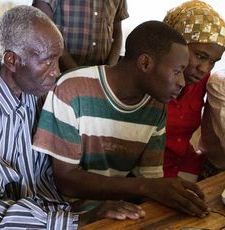ABOUT THE RESOURCE
In 2011, new pilot projects from Armenia, Nepal, Kyrgyzstan, Russia, and Zimbabwe were selected to demonstrate implementation of a service that addressed their local needs. They then evaluated and documented their experiences.
The pilots addressed a range of challenges facing libraries; from tools to support users by enhancing access to library resources, such as guided searching software or disability aids, to software to enable the library to operate digitally such as Integrated Library Systems (ILS) software or digital repository tools.
A pilot was undertaken at the University of Zimbabwe Library to provide access and training on two tools, Virtual Magnifying Glass and Balabolka (a magnifier and a text-to-speech tool). They also piloted AccessApps memory sticks. You can download the full, final report from the pilot below, and an executive overview of the pilot here. Compiled by: Yeukai Chimuka, Tendai Mataranyika and Darlington Musemburi, University of Zimbabwe.
Disability Tools
Disability tools are promoted within the library community as a means of enhancing access to information for library users with disabilities, usually those that come into the category of 'print-impairment' such as vision impairments and dyslexia. There is a huge number of programs available, from screen readers (that read aloud all functions of a computer including menus and commands, usually used by blind people) and text-to-speech programs (that read aloud designated text, usually used by people with vision impairments or dyslexia) to simple display modifiers that change the font or background colour of the screen or even the size and colour of the cursor.
Related Links
There are many FOSS tools that can be used to support library users and staff with their everyday work, especially those with disabilities, ranging from tools that change the screen colour or highlight the cursor, to tools that read on-screen text aloud, to tools that assist with note-making or planning.
- Languages: Varies - for example Balabolka, the text-to-speech tool, is configured for 21 languages, with Help files in 6 languages
- (jisctechdis.ac.uk/techdis/technologymatters/enablingtech/FOSS) Homepage
- Download page - eduapps.org/?page_id=52
- Licence: It varies for each tool. AccessApps is free only for educational purposes
- User community: Join some of the (jisctechdis.ac.uk/techdis/aboutus/keepintouch) mailing lists
- Developer community: It varies
SHARE / PRINT









